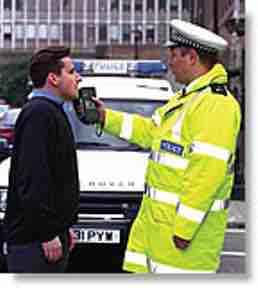Jargon Defined
Jargon is the common vocabulary used by specific professions or groups of people within those professions. It can be similar to slang or it can be highly technical. Legal jargon, medical jargon, and police jargon are all examples of different types of jargon that exist in very different professions .

Police Jargon
Police have their own specific jargon which may not be understood by those outside the profession.
Much like slang, jargon can develop as a kind of short-hand to express ideas that are frequently discussed between members of a group, though it can also be developed deliberately using chosen terms. A standard term may be given a more precise or unique usage among practitioners of a field. In many cases, this causes a barrier to communication with those not familiar with the language of the field. As an example, the words RAM, bit, byte, CPU, HDD, and hexadecimal are jargon terms related to computing.
When writing business documents, it is recommended that authors avoid using technical jargon for the sake of looking smart. Instead, they should use it only when necessary with appropriate audiences who understand their significance. Using simple verbiage instead ensures understanding by a broad spectrum of users.
When to Use Jargon
You can increase the usability and persuasiveness of your writing by wisely using the specialized terms of your own profession. You should use jargon to convey precise, technical meanings efficiently, as many terms have no exact equivalent in everyday speech.
In addition, you should use jargon to help you establish credibility. By using the specialized terms of your field accurately, you show your fellow specialists that you are adept in it. However, you should avoid using technical terms your readers will not understand.
Slang
The term slang includes words, expressions, or the special use of language, used in informal speech.
Slang is especially common in pop, rock, jazz, and rap music, as well as in films, all of which tend to have international audiences. As a result, many foreign speakers who have learned more formal registers are sometimes surprised when they hear expressions like: "I gotta go! " (I have to go now), or "What's up bro? " (How are you my friend). In certain regions, certain dialects may have this non-standard language incorporated into "normal" speech.
Writers of official documents or papers should avoid using slang, whatever the context. While jargon may be acceptable in certain types of documents, one should avoid using slang words, even in documents like memos that always have a conversational style.